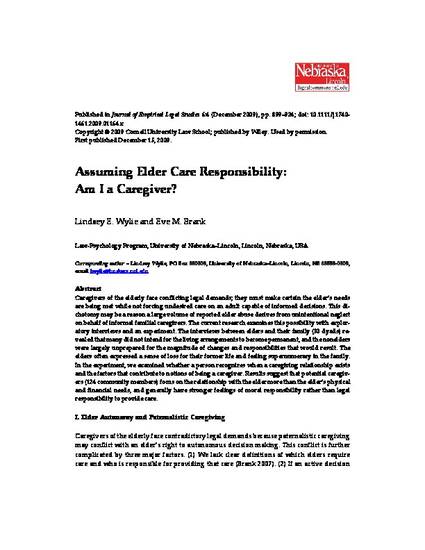
- Elder Law and
- Psychology
Journal of Empirical Legal Studies 6:4 (December 2009), pp. 899–924.
doi: 10.1111/j.1740-1461.2009.01164.x
Caregivers of the elderly face conflicting legal demands; they must make certain the elder’s needs are being met while not forcing undesired care on an adult capable of informed decisions. This dichotomy may be a reason a large volume of reported elder abuse derives from unintentional neglect on behalf of informal familial caregivers. The current research examines this possibility with exploratory interviews and an experiment. The interviews between elders and their family (30 dyads) revealed that many did not intend for the living arrangements to become permanent, and the nonelders were largely unprepared for the magnitude of changes and responsibilities that would result. The elders often expressed a sense of loss for their former life and feeling supernumerary in the family. In the experiment, we examined whether a person recognizes when a caregiving relationship exists and the factors that contribute to notions of being a caregiver. Results suggest that potential caregivers (124 community members) focus on the relationship with the elder more than the elder’s physical and financial needs, and generally have stronger feelings of moral responsibility rather than legal responsibility to provide care.
Available at: http://works.bepress.com/lindsey-wylie/12/

Copyright © 2009 Cornell University Law School; published by Wiley. Used by permission.